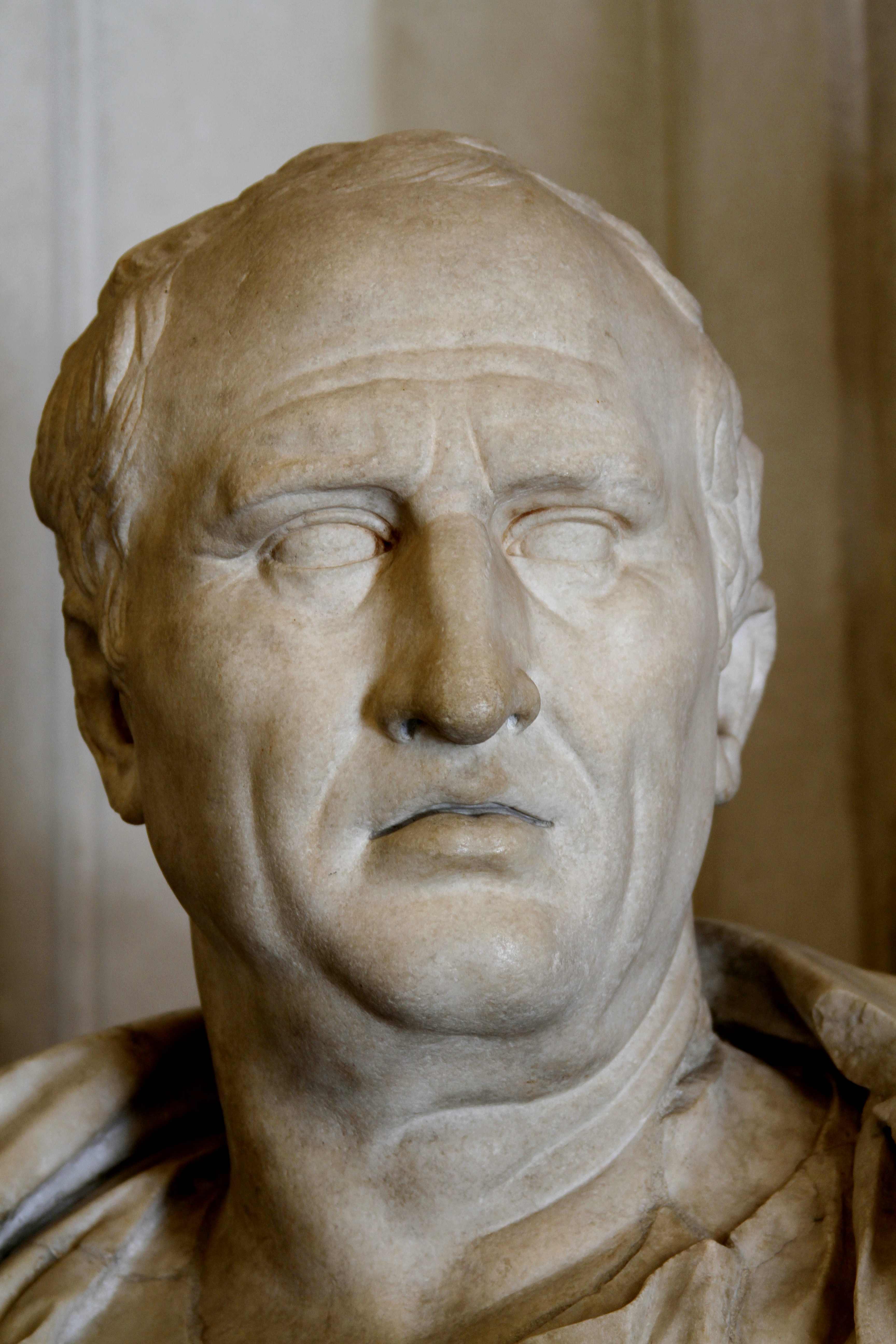Amicitia in sociability networks in the Roman Republic: the case of Cicero and Pompey
DOI:
https://doi.org/10.47456/e-20243506Keywords:
Cícero, sociability, amicitiaAbstract
Within the scenario of disputes to political consolidation and crises in the last century of the Roman Republic, the networks of interpersonal interaction emerge as a primable resource for those public individuals who sought to ascend in the public career. Thus, seeking to broaden the discussion about the magnificence of sociability within the Roman Republic, the article turns to the figure of Senator Marco Túlio Cicero, who as a new man greatly enjoyed his interdependent relationships. Discussing the malleability of these bonds at the time, the relevance of the Ciceronian amicitia as a tool for crisis resolution is considered. In this discussion, the approach between Cicero and Pompey is exposed, reflecting on how this sociability between the parties ensured a reciprocal influence on the construction of their careers.
Downloads
References
Fontes
CÍCERO, M. T. Cartas a Ático. Introducción, traducción y notas de Juan A. Ayala. México: Universidad Autónoma de México, 1975.
CÍCERO, M. T. Sobre a amizade (De Amicitia). Tradução, introdução e notas de João Teodoro d’Olim Marote. Nova Alexandria: São Paulo, 2006.
Obras Gerais
AZKONA, A. L. La Constitución Romana Republicana: Cneo Pompeyo Magno. Monografia (Estudios Clásicos, Historia Antigua) - Universidad del País Vasco, Leioa, 2022.
AMELA VALVERDE, L. Cneo Pompeyo Magno: El defensor de la República romana. Madrid: Signifer Libros, 2003.
BROWN-MOFFIT, M. Cicero and His Exploration of Friendship. Thesis (Bachelor of Arts in Classics) - Honors Program Theses, University of Puget Sound, Tacoma, 2019.
BRUNT, P. A. The Fall of the Roman Republic and Related Essays. New York: Oxford University Press, 1988.
CORMACK, M. Creatures of the triumvirs: A study of the patron-client relationship in the Late Roman Republic. Thesis (Honors Program) - Department University Scholars, Baylor University, Waco, 2016.
GILDENHARD, I.; HODGSON, L. Cicero, On Pompey's Command (De Imperio). Cambridge: Open Book Publishers, 2014. DOI: https://doi.org/10.11647/OBP.0045
GRANOVETTER, M. The Strength of Weak Ties: A Network Theory Revisited. Sociological Theory, v. 1, n. 6, p. 201-233, 1983. DOI: https://doi.org/10.2307/202051
GREENHALGH, P. Pompey: The Roman Alexander. London: Butler & Tanner, 1980.
KONSTAN, D. A amizade no mundo clássico. Tradução Marcia Epstein Fiker. São Paulo: Odysseus, 2005.
LINTOTT, A. The crises of the Republic: sources and source-problems. In.: CROOK, J.; LINTOTT, A.; RAWSON, E. (ed.). The Cambridge Ancient History. Cambridge: Cambridge University Press, 2008a, p. 1-16. v. 9. DOI: https://doi.org/10.1017/CHOL9780521256032.002
LINTOTT, A. The Roman empire and its problems in the late second century. In.: CROOK, J.; LINTOTT, A.; RAWSON, E. (ed.). The Cambridge Ancient History. Cambridge: Cambridge University Press, 2008c, p. 16-40. v. 9. DOI: https://doi.org/10.1017/CHOL9780521256032.003
LOMAS, K. Vicinitas: Neighbourhoods, Networks and Identities in Ciceronian Italy. Gerión, Revista de Historia Antigua, v. 37, n. 1, p. 51-73, 2019. DOI: https://doi.org/10.5209/GERI.63868
LOMAS, K. The Weakest Link: Elite Social Networks in Republican Italy. In.: ROSELAAR, S. T (ed.). Processes of integration and identity formation in the Roman Republic. Leiden: Brill, 2012, p. 197-215. DOI: https://doi.org/10.1163/9789004229600_013
MOFFIT BROWN, M. Cicero and His Exploration of Friendship. Thesis (Bachelor of Arts in Classics) - Honors Program Theses, University of Puget Sound, Tacoma, 2019.
RAUH, N. Finance and Estates Sales in Republican Rome. Vita e Pensiero, n. 63, p. 45-76, 1986.
OLIVEIRA, A. C. A manutenção da amicitia a partir das estratégias de polidez das epistolae ad familiares de Cícero. Verbum, v. 10, n. 1, p. 100-114, 2021. DOI: https://doi.org/10.23925/2316-3267.2021v10i1p100-114
OLIVEIRA, A. C. QVID ENIM SVM? O lugar do exilado na epistolografia ciceroniana. Dissertação (Mestrado em Letras) - Programa de Pós-Graduação em Letras, Centro de Ciências Humanas e Naturais, Universidade Federal do Espírito Santo, Vitória, 2019.
PÉREZ MEDINA, S. V. Pompeyo, Craso y César (71-49 A.C.): Sus actividades, relaciones personales y contactos políticos en la crisis de la república romana. Tese (Doutorado em História Antiga) - Facultad de Geografía e Historia, Madrid, 2015.
PINA POLO, F. Marco Tulio Cicerón. Barcelona: Editorial Planeta, 2016.
RAWSON, E. Cicero: A Portrait. London: Penguin Books, 1975.
ROSILLO-LÓPEZ, C. Informal Political Communication and Network Theory in the Late Roman Republic. Journal of Historical Network Research, v. 4, p. 90-113, 2020.
ROSILLO-LÓPEZ, C. Political Conversations in Late Republic Rome. New York: Oxford University Press, 2022. DOI: https://doi.org/10.1093/oso/9780192856265.001.0001
ROSILLO-LÓPEZ, C. Public Opinion and Politics in the Late Roman Republic. New York: Cambridge University Press, 2017. DOI: https://doi.org/10.1017/9781316535158
SEAGER, R. Pompey the Great: A political biography. New Jersey: Blackwell Publishing, 2002. DOI: https://doi.org/10.1002/9780470773420
STEEL, C. The End of the Roman Republic, 146 to 44 B.C. Edinburgh: University Press, 2013. DOI: https://doi.org/10.1515/9780748629022
SIMMEL, G. Questões fundamentais da sociologia: indivíduo e sociedade. Zahar: Rio de Janeiro, 2006.
TATUM, J. Gang Violence in the Late Roman Republic. In.: FAGAN, G. E. et al. (ed.). The Cambridge World History of Violence: The Prehistoric and Ancient Worlds. Cambridge: University Printing House, 2020, p. 400-418. DOI: https://doi.org/10.1017/9781316341247.021
TEMPEST, K. Cicero: Politics and Persuasion in Ancient Rome. New York: Continuum, 2011.
VERBOVEN, K. Friendship. In.: PEACHIN, M. (ed.). The Oxford Handbook of Social Relations in the Roman World. New York: Oxford University Press, 2011, p. 404-421.
VERBOVEN, K. The Economy of Friends: Economic Aspects of Amicitia and Patronage in the Late Republic. Leuven: Peeters Publishers, 2002.
VERBOVEN, K. The utility of affection: Towards a new approach to 'friendship' in ancient Rome. In.: “Actor, agency, network” Personal relations as structuring elements in the formation of broader networks (Late Antiquity until Early Modern Times) - Studiedag aan deVUB, georganiseerd door het Medieval Friendship Network, Brussels, 2006.
WHITE-SHERWIN, A. Lucullus, Pompey and the East. In.: CROOK, J.; LINTOTT, A.; RAWSON, E. (ed.). The Cambridge Ancient History. Cambridge: Cambridge University Press, 2008, p. 229-274. v. 9.
WILLIAM JÚNIOR, C. E. Pompey and Cicero: an alliance of convenience. Thesis (Master of Arts) - Texas State University, San Marcos, 2013
WILLIAMS, C. A. Reading Roman Friendship. New York: Cambridge University Press, 2012. DOI: https://doi.org/10.1017/CBO9780511777134

Downloads
Published
How to Cite
Issue
Section
License
Copyright (c) 2024 Ágora Journal

This work is licensed under a Creative Commons Attribution-ShareAlike 4.0 International License.
Revista Ágora (Vitória) © 2005 by Universidade Federal do Espírito Santo is licensed under Attribution-ShareAlike 4.0 International






















